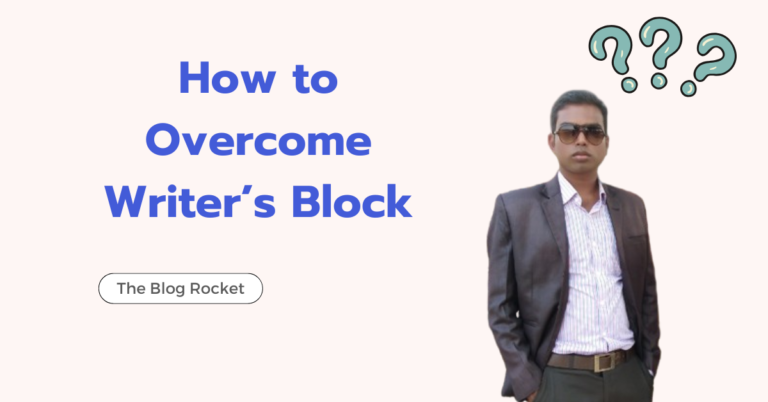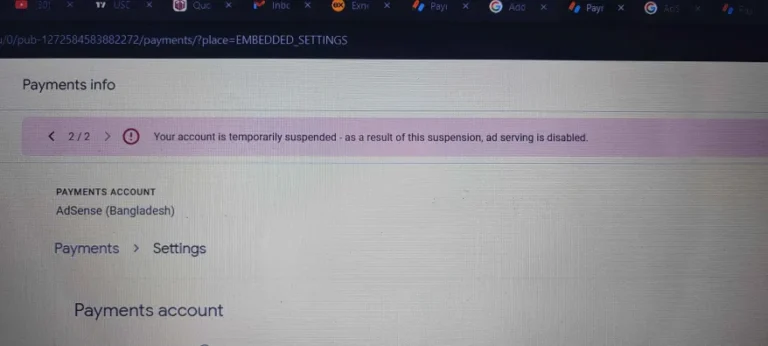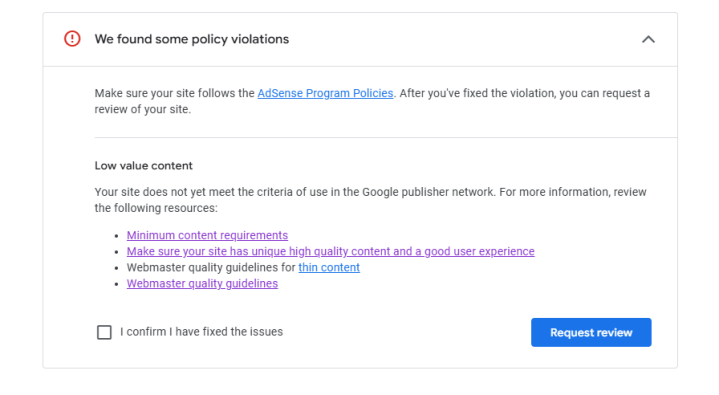Hey there, fellow introverts! 👋
If you’re anything like me, you probably love blogging because it allows you to express yourself at your own pace, without the pressure of face-to-face interactions.
When I first started blogging, I was super excited to dive into topics I was passionate about. But then I stumbled upon something that felt like a huge roadblock: YMYL content.
At first, I had no clue what YMYL (Your Money or Your Life) meant. It sounded intense, and spoiler alert—it is. YMYL content can affect someone’s health, finances, or even safety. No pressure, right?
So, if you’re a beginner like me, you might want to think twice before jumping into these high-stakes niches.
Trust me; I’ve been there. Let’s dive into why.
Contents
- 1 My First (Big) Mistake: Jumping Into a YMYL Niche
- 2 What is YMYL?
- 3 Why Google is So Strict About YMYL Content
- 3.1 How Google’s strict E-A-T guidelines have impacted specific blogs and industries
- 3.2 How to Avoid These Pitfalls
- 4 Common YMYL Niches
- 5 Why I Decided to Pivot to Non-YMYL Niches
- 6 What is Non-YMYL Content?
- 7 YMYL Content and Google’s E-A-T Guidelines
- 8 Google Updates That Affect YMYL Niches
- 9 Why Should You Avoid YMYL Niches as a Beginner?
- 10 Is It Worth It?
- 11 Final Thoughts
- 12 Related FAQs
My First (Big) Mistake: Jumping Into a YMYL Niche
I started my blogging journey with grand ideas of writing about health and fitness. I figured, “I’ve been working out for years. I know a thing or two, so why not share?”
Little did I know that writing about health topics wasn’t just sharing my favorite smoothie recipe or workout routine. It was a whole different ball game.
I quickly learned that Google has very high standards for YMYL content—especially health-related topics. We’re discussing strict guidelines like E-A-T (Expertise, Authoritativeness, Trustworthiness).
And honestly, I wasn’t ready for it.
I was pouring hours into researching every little thing, even reaching out to a friend who’s a certified nutritionist for advice.
Still, my posts weren’t ranking well, and I was left feeling discouraged.
It felt like trying to win a marathon without training—just exhausting. That’s when I realized that diving into YMYL niches as a beginner wasn’t the smartest move.
What is YMYL?
So, what exactly is YMYL?
If you’re hearing this term for the first time, let me break it down.
YMYL stands for Your Money or Your Life, and it refers to any content that can directly affect a person’s happiness, health, financial stability, or overall safety.
Google treats YMYL content differently from other types of content because the stakes are higher. Misinformation in these areas can have serious consequences.
Simply put, if your blog post could impact someone’s financial future, health, or well-being, it’s YMYL. And if you don’t have the credentials or experience to back up your claims, Google won’t take you seriously.
Why Google is So Strict About YMYL Content
Google is pretty straightforward about its stance on YMYL content: it wants to protect users. Imagine someone getting bad medical advice from a blog. The impact could be life-threatening! Similarly, bad financial advice could ruin someone’s savings. This is why Google introduced the E-A-T guidelines.
E-A-T stands for Expertise, Authoritativeness, and Trustworthiness.
For YMYL content, these three pillars are everything. If your content doesn’t show expertise, it won’t rank. If you’re not seen as an authority in your niche, forget about it. And if your content isn’t trustworthy—good luck getting it noticed by Google.
How Google’s strict E-A-T guidelines have impacted specific blogs and industries
Real-world examples of how specific industries and blogs have been impacted by Google’s YMYL-related algorithm updates, particularly the 2018 Medic Update.
Here are a few examples of how industries were impacted:
1. Health and Wellness Websites Post-Medic Update
In August 2018, Google rolled out the Medic Update, which was particularly harsh on health-related websites. The goal was to improve the quality of health content by emphasizing E-A-T (Expertise, Authoritativeness, and Trustworthiness).
Many health and wellness blogs, especially those needing more credible sources or written by non-experts, saw dramatic drops in traffic.
Real-World Example:
- Dr. Axe, a well-known natural health website, experienced significant drops in rankings following the update. Despite having medically backed content, their focus on alternative health practices didn’t fully align with Google’s E-A-T requirements. After the update, sites offering more traditional, peer-reviewed medical advice, like WebMD and Mayo Clinic, surged in rankings.
- Mercola, a site focusing on alternative medicine and holistic health, was also hit hard. The lack of medical credentials and reliance on controversial opinions led Google to deprioritize the site, leading to a significant loss in organic traffic.
2. Financial Advice Blogs
Financial advice is another area where Google has tightened its algorithms due to the potential consequences of incorrect or misleading information.
Blogs offering investment tips, tax advice, or loan guidance have been scrutinized heavily since YMYL guidelines were enacted.
Real-World Example:
- The Penny Hoarder, a popular personal finance blog, saw significant shifts in its rankings following Google’s core updates. While it provides practical financial tips, some of its content lacked the authoritative backing (e.g., contributions from certified financial planners) required by Google’s standards. Websites like Investopedia and The Balance, which feature content written by financial professionals, gained prominence.
- Another example is MoneySavingExpert, a UK-based personal finance site that retained its strong rankings due to its adherence to expertise. Financial experts manage the site, and its credibility remains intact even as algorithm changes hit others in the financial niche.
3. Legal Blogs
Legal advice is tricky for bloggers because legal interpretation can vary widely across jurisdictions. Incorrect legal information can lead to lawsuits or other adverse outcomes, making it a critical YMYL topic.
Real-World Example:
- Nolo, a legal advice website, saw fluctuations during Google’s algorithm updates. However, because it regularly features content written by attorneys and legal professionals, it retained much of its authority and traffic.
- On the other hand, smaller legal blogs run by non-professionals or hobbyists experienced a drop in visibility. Sites that didn’t consistently cite credible legal sources or lacked expert authorship struggled to maintain their rankings post-update.
4. Cryptocurrency and Investment Blogs
With the rise of cryptocurrencies, many bloggers have entered the niche to offer investment advice. However, because crypto involves high financial risk, it falls under YMYL guidelines.
Google has applied stricter filters to ensure only content from trusted financial sources ranks well.
Real-World Example:
- Sites like CoinTelegraph and CryptoSlate, which focus on news and in-depth analysis of cryptocurrency markets, experienced significant ranking changes after algorithm updates. Some of these sites suffered due to the speculative nature of their content, which needed to meet Google’s high standards for financial accuracy.
- In contrast, more authoritative platforms like Forbes and The Wall Street Journal, which feature expert analysis and opinions from licensed financial advisors, performed well even in this volatile niche.
5. E-Commerce and Product Review Websites
E-commerce websites and blogs focusing on product reviews (especially in tech or health industries) can also be subject to YMYL scrutiny.
Google wants to ensure consumers aren’t misled by biased or poorly researched reviews, particularly for high-cost items or health-related products.
Real-World Example:
- Wirecutter, a product review website owned by The New York Times, has retained strong rankings thanks to its rigorous testing and expert recommendations. Each review is written by industry professionals, which bolsters its E-A-T.
- Smaller, affiliate-driven sites often struggle in comparison. Websites with reviews written by generalists or without hands-on product testing saw drops in rankings as they couldn’t meet Google’s expectations for expertise and trustworthiness.
How to Avoid These Pitfalls
If you’re writing in a YMYL niche, these examples demonstrate the importance of aligning with Google’s E-A-T guidelines. Here are some strategies that helped these successful sites (and could help you, too):
- Expert Contributions: Collaborating with professionals in your field (e.g., doctors, financial planners, attorneys) can lend credibility to your content.
- Citing Reliable Sources: Always back up your claims with reputable sources, such as government agencies, academic papers, or peer-reviewed studies.
- Staying Up to Date: Ensure your information is current. Old or outdated advice can negatively impact your E-A-T.
By focusing on these principles, bloggers can still thrive in YMYL niches, but careful planning and expertise are required to avoid penalties from Google’s ever-evolving algorithm.
Common YMYL Niches
If you’re still curious about whether the niche you’re eyeing falls under YMYL, here are some common examples:
Finance
- Investment advice
- Saving Tips
- Budgeting strategies
- Retirement planning
Health & Wellness
- Medical advice
- Mental health tips
- Nutrition information
- Fitness routines
Legal & Safety
- Legal Guidance
- Law interpretation
- Safety tips (e.g., emergency preparedness)
These are essential topics, but they also require much knowledge and credibility. I’m not saying you should never write about YMYL topics, but as a beginner, it might be better to avoid them until you’ve gained more experience (or have access to experts who can help).
Why I Decided to Pivot to Non-YMYL Niches
After struggling to rank with my health and fitness blog, I pivoted.
I started writing about things I was just as passionate about but without the heavy burden of YMYL standards.
Topics like home decor, personal development, and travel tips became my new focus. Not only were these topics more straightforward to write about, but they also started ranking faster because they weren’t under the same scrutiny as YMYL niches.
I was switching to non-YMYL topics, which felt like fresh air. I wasn’t constantly worried about whether my content would be flagged or penalized by Google’s algorithm, and honestly, blogging became fun again.
And that’s the point, right?
What is Non-YMYL Content?
Unlike YMYL content, non-YMYL content covers lighter, more accessible topics that don’t directly impact someone’s life, money, or safety. Here are some great examples of non-YMYL niches that are beginner-friendly:
Lifestyle
- Travel guides
- Home decor ideas
- Self-care routines
Hobbies
- Photography tips
- Gardening advice
- Crafting projects
Entertainment
- Movie reviews
- Music recommendations
- Game reviews
YMYL Content and Google’s E-A-T Guidelines
If you’re still set on writing YMYL content, you must familiarize yourself with Google’s E-A-T guidelines.
Google expects YMYL content to be backed by qualified experts, reliable sources, and solid data. In other words, you must prove you know what you’re talking about.
How to Improve E-A-T for YMYL Content:
- Research Extensively: Your content should be based on the latest, most reliable sources. Google loves when scientific studies, official documents, or expert opinions back content.
- Cite Your Sources: Always link to credible websites, research papers, or recognized organizations to support your claims.
- Collaborate with Experts: If you’re not an expert in a YMYL topic, consider teaming up with someone who is. Their input can boost your credibility.
- Build a Strong Author Bio: Your readers (and Google) need to trust you. Make sure your bio reflects any relevant qualifications or experience.
- User Experience Matters: YMYL content must be easy to navigate and digest. This means no clutter, clear headings, and helpful information that’s easy to understand.
Google Updates That Affect YMYL Niches
Let’s not forget about Google’s ever-changing algorithm. If you’ve been blogging for a while, you know that Google loves to shake things up with updates.
The most notable YMYL-related update was the Medic Update 2018, which shook the health and wellness world. Blogs in these niches saw their rankings plummet if they didn’t meet E-A-T standards.
But it’s not just about health. Financial, legal, and safety topics also fall under the YMYL umbrella, and Google continues tightening the requirements for these niches.
Why Should You Avoid YMYL Niches as a Beginner?
After reading this far, you probably wonder: Should I avoid YMYL niches altogether?
Well, that’s up to you.
Trust me, it’s like stepping into a lion’s den. There are several key reasons why it’s brilliant for beginner bloggers to avoid YMYL niches:
Highly Competitive Nature
YMYL niches—such as health, finance, legal, and safety—are some of the most competitive spaces on the web. Large, established players like WebMD, Mayo Clinic, Investopedia, and Forbes dominate the search results.
These websites have built their credibility over many years and have the financial resources to produce top-tier, expert-driven content.
As a new blogger, competing against these giants is an uphill battle. The leaders in these niches have teams of experts, content strategists, and SEO professionals working behind the scenes.
It’s not impossible to carve out a space, but you’ll need more than just passion—credentials, authoritative sources, and a strategic long-term plan.
The Demand for Constant Updates
YMYL topics are constantly evolving, especially in healthcare, finance, and legal advice. What’s accurate today may become outdated tomorrow. This means you must continually update your content to stay relevant and correct.
Google rewards fresh, up-to-date content, so your blog posts can quickly fall out of favor if you don’t keep them current.
For example, financial advice often changes with new laws, market conditions, or economic shifts, and health advice can evolve as new research emerges.
Maintaining your content’s relevance and accuracy requires a long-term commitment that can be overwhelming for a beginner, especially if you’re juggling multiple responsibilities or are a solo blogger.
Long-Term Commitment to Quality
When you blog in a YMYL niche, you sign up for a long-term commitment. You can’t just write a post and leave it. YMYL niches require deep research, expert input, and constant quality control to ensure your content meets Google’s E-A-T standards.
For instance, if you’re writing about legal issues or medical conditions, every blog post you publish must be fact-checked and supported by credible sources, like peer-reviewed journals, government publications, or certified professionals.
You’ll also need to demonstrate your credibility by building a solid author bio or collaborating with experts. And even when you’ve created high-quality content, you’ll need to keep refining it over time.
The Risk of Penalties
Google’s algorithm is particularly stringent regarding YMYL content, and any misstep—such as inaccurate information or a lack of credible sources—can result in a penalty.
Penalties can cause your rankings to plummet, and once your site has been flagged, it can be challenging to recover.
For example, after the 2018 Medic Update, many health and wellness blogs saw huge drops in traffic because their content didn’t meet the E-A-T standards Google expects from YMYL topics.
Financial and legal blogs were similarly affected by algorithm updates. This makes it incredibly risky for beginners who might not have the expertise or resources to consistently meet these high standards.
Burnout is Real
Writing for YMYL niches can be exhausting. The amount of research, fact-checking, and expert verification required can leave you feeling burned out, especially if you’re a solo blogger.
YMYL niches demand detail and professionalism, which takes time, effort, and patience.
While it might feel satisfying to produce one well-researched post, doing that repeatedly while dealing with algorithm changes and constant updates can drain your energy fast.
This level of commitment isn’t sustainable for everyone, and it’s important to recognize when a niche may be too demanding, especially in the early stages of your blogging career.
Harder to Build a Following
Let’s not forget—building an audience in a YMYL niche can take longer. Readers in these niches expect high-quality, authoritative content and are more cautious about who they trust. Convincing people to stick around or share your posts without a strong background or visible expertise can be challenging.
Compare this with non-YMYL niches, where you can build a following much faster by sharing personal experiences, relatable stories, and lighter advice.
In non-YMYL niches, readers are often more forgiving and interested in your perspective than your credentials.
Is It Worth It?
YMYL niches are challenging, highly competitive, and require constant attention.
As a beginner, you may want to reconsider diving into these waters if you have expert credentials or are willing to invest significant time and effort into constant updates and research.
The risk of penalties, the demand for frequent content updates, and the fierce competition make it tough to break through.
Instead, consider starting with non-YMYL niches that are easier to rank for and won’t require the same level of scrutiny. Once you’ve built your blog, gained experience, and perhaps even developed partnerships with industry experts, you can consider expanding into YMYL topics with more confidence.
Focusing on a niche that doesn’t demand as much expertise or constant content updates will make blogging smoother and allow you to enjoy it more!
Consider Alternative Niches
If you’re looking for a smoother path to blogging success, consider non-YMYL niches.
There are so many topics out there that you can explore without feeling like you need to be an expert. Whether it’s travel, hobbies, or entertainment, you can build a blog that resonates with readers and ranks well without the added stress.
Some Non-YMYL Niches to Explore:
- Lifestyle: Travel, fashion, home decor.
- Hobbies: Gardening, photography, crafting.
- Entertainment: Movie reviews, gaming, music.
- Education: Study tips, language learning, DIY projects.
These niches are generally easier to rank for and have a broader appeal without the stringent requirements of YMYL content.
Final Thoughts
In the blogging world, YMYL content can feel like the “big leagues,” but it’s important to remember that not all blogs need to be in these high-stakes niches.
As a beginner, I made the mistake of diving into a YMYL niche without understanding the challenges. It slowed my progress, frustrated me, and made me rethink my approach.
My advice? If you’re just starting, try focusing on non-YMYL topics.
They’re easier to rank for, and you’ll enjoy the process much more. Blogging should be fun, not stressful!
Good luck, and happy blogging!
Related FAQs
What Does YMYL Stand For?
YMYL stands for “Your Money or Your Life,” referring to content that can impact a person’s future happiness, health, financial stability, or safety.
Why Is YMYL Content More Challenging to Rank?
Google scrutinizes YMYL content more closely, and it must meet high standards of expertise, authoritativeness, and trustworthiness.
Can Beginners Succeed in YMYL Niches?
While it’s possible, beginners often face significant challenges in building the necessary credibility and authority required to rank well in YMYL niches.
What Are Some Safer Niches for Beginner Bloggers?
Safer niches include lifestyle, travel, personal hobbies, and entertainment, which typically have fewer restrictions and lower competition than YMYL niches.
How Can I Improve the E-A-T of My Blog?
Focus on creating high-quality, accurate content, cite credible sources, and consider collaborating with experts to enhance your blog’s authority.
What Happens If Google’s Algorithm Changes?
Algorithm changes can significantly impact your blog’s traffic and ranking. It is essential to stay updated with Google’s updates and adapt your content strategy accordingly.







